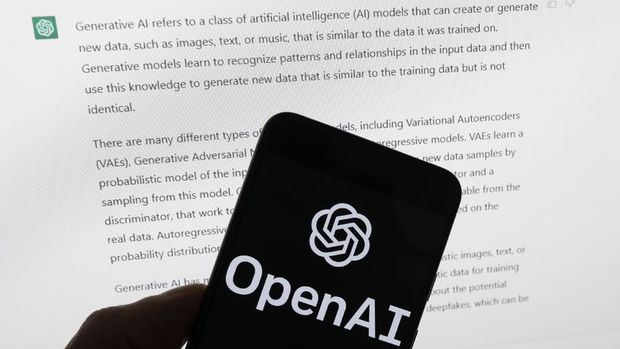OpenAI/Altman: New rules must be introduced to combat AI risks
Sam Altman, CEO of OpenAI, the company that created ChatGPT, testified before the US Senate that he welcomes regulation of AI technology and that there is a reasonable concern that AI technology could influence upcoming elections if left unchecked. OpenAI CEO Sam Altman has called on US lawmakers to regulate rapidly developing AI technology, citing concerns about its potential to provide “interactive disinformation” ahead of next year’s US elections. Altman welcomed regulation of the emerging technology and called for independent oversight and licensing during a hearing before the US Senate subcommittee on privacy, technology and law on Tuesday. Altman was also asked by senators about the ability of AI to predict and influence public opinion regarding upcoming elections. “The ability of these models to influence elections is a reasonable area of concern,” he said. “The general ability of these models to disinform, to manipulate, to persuade in one-to-one interactions. I think that’s a significant area of concern, given that we have an election coming up next year and these models are getting better.” Altman called on lawmakers to create “guidelines around what is expected in terms of disclosure” for companies offering the technology. However, he added that the public will quickly come to understand the power of this technology. “When Photoshop came on the scene a long time ago, for a while people were really quite taken with Photoshopped images, and then they developed an understanding pretty quickly that images could be Photoshopped. This is going to be the same way,” he said. The hearing comes as regulators and governments around the world have stepped up their scrutiny over potential abuses of the technology developed by Silicon Valley groups such as Google and Microsoft. Last week, EU lawmakers agreed on tougher rules on the use of artificial intelligence, including restrictions on chatbots such as ChatGPT. Earlier this month, the US Federal Trade Commission and the UK competition watchdog also issued warnings to the industry. The FTC said it was “intensely focused on how companies may choose to use AI technology”, while the UK’s Competition and Markets Authority plans to launch a review of the AI market. The US Congress also plans to speak to more industry insiders in the coming months as it explores how to regulate the technology. “We need to limit or even ban the use of AI where the risks of AI are extreme, particularly when it comes to commercial invasions of privacy for profit and impacting people’s livelihoods,” said Richard Blumenthal, a Democrat from Connecticut who chairs the privacy subcommittee, at a hearing on Tuesday. “I think if this technology goes wrong, it could go very wrong,” Altman said of the need for collaboration between industry and lawmakers to create effective rules. “I think if this technology goes wrong, it could go very wrong. And we want to be vocal about that. We want to work with the government to prevent that from happening.” Altman acknowledged that technologies such as GPT-4, the technology underlying ChatGPT, will “completely automate some jobs,” but argued that OpenAI will create new jobs that he believes will be “much better.” Blumenthal said his “biggest nightmare” about the emerging technology is “the coming of the new industrial revolution, millions of workers being displaced, and a lot of people losing their jobs.” He cited a lack of speed in regulating social media and a desire to “not repeat our past mistakes.” Several prominent figures have recently voiced their concerns The rapid development of generative AI, which can produce convincing human-like writing in the past six months, has been met with concern by some AI ethicists. In March, Twitter CEO Elon Musk and more than 1,000 tech researchers and executives signed a letter calling for a six-month pause on development of AI language models more powerful than GPT-4, the underlying technology OpenAI uses for its chatbot. Earlier this month, Geoffrey Hinton, considered the father of AI, left Google after a decade at the tech giant to speak freely about the risks of the technology, which he warned would increase societal divisions and be exploited by bad actors.


